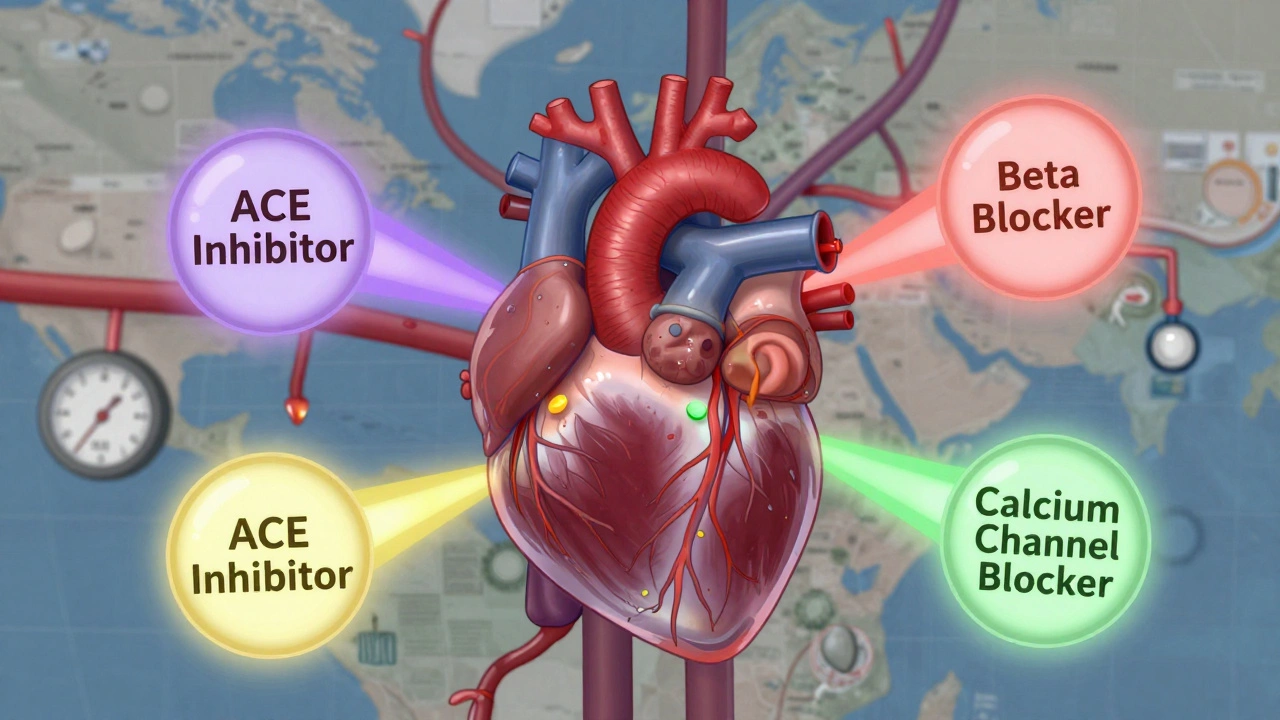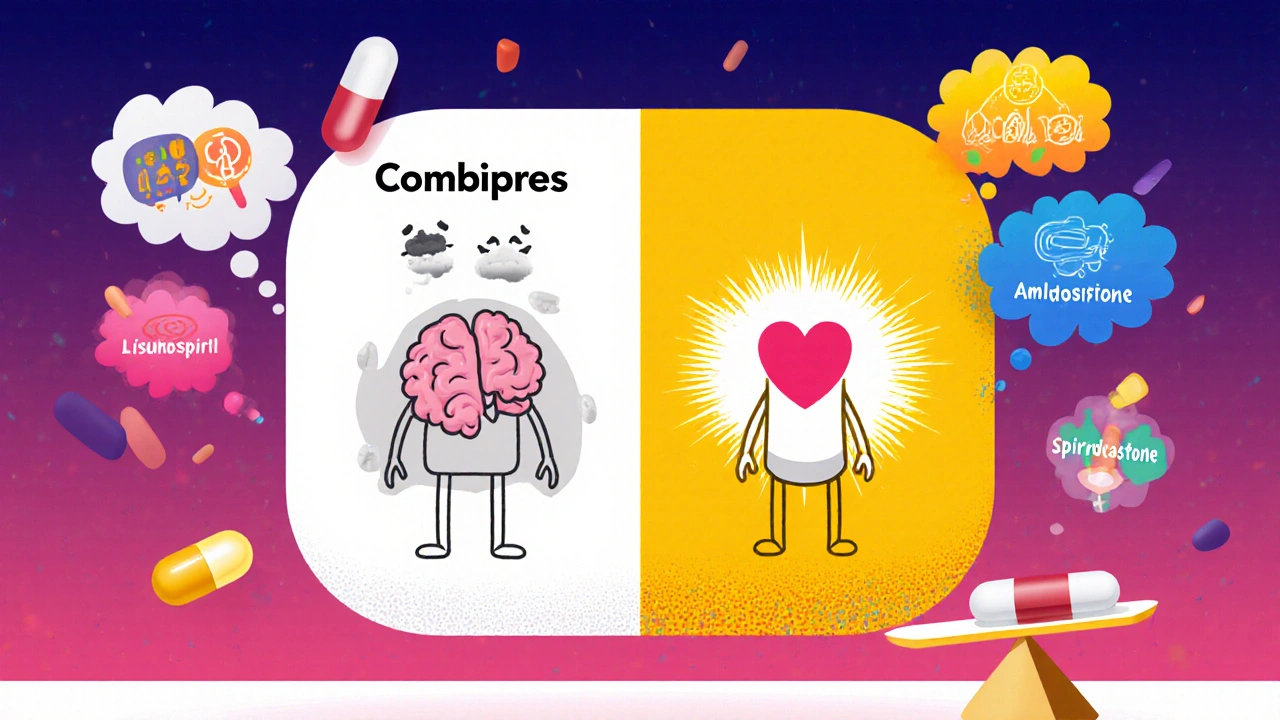Blood Pressure Meds: What They Are, How They Work, and What You Need to Know
When your doctor says you need blood pressure meds, prescription drugs designed to lower high blood pressure and reduce the risk of heart attack or stroke. Also known as antihypertensive drugs, they don’t cure anything—they help your body manage a condition that often has no symptoms until it’s too late. High blood pressure, or hypertension, silently strains your heart, arteries, and kidneys. Taking these meds isn’t optional if you want to stay healthy long-term. But not all blood pressure meds work the same way, and not all are right for everyone.
There are several main types, each with a different job. beta blockers, drugs that slow your heart rate and reduce the force of each heartbeat. Also known as beta-adrenergic blocking agents, they’re often used when someone has heart issues along with high blood pressure. Then there are ACE inhibitors, medications that relax blood vessels by blocking a chemical that narrows them. Also known as angiotensin-converting enzyme inhibitors, they’re common for people with diabetes or kidney problems. Diuretics, calcium channel blockers, and ARBs are other big players. Each has side effects, interactions, and reasons why one might be picked over another. Propranolol, for example, is a beta blocker that can mess with sleep—something you won’t always hear about until you’re already taking it.
What you’ll find here isn’t a list of brand names or pharmacy deals. It’s real talk about what these drugs actually do to your body, what side effects people actually report, and how they compare to each other. You’ll see how propranolol affects rest, why some meds work better for certain people, and how other heart drugs like trimetazidine or atorvastatin sometimes overlap in use. There’s no sugarcoating—some meds cause fatigue, dizziness, or weird dreams. Others might help with anxiety or chest pain on the side. The goal isn’t to scare you, but to help you ask better questions and understand why your doctor chose what they did.
These aren’t one-size-fits-all pills. Your age, other health issues, even your sleep habits can change what works. If you’re on blood pressure meds and wondering why you’re tired all the time, or why your doctor switched you from one pill to another, the answers are in the details. Below, you’ll find honest breakdowns of real medications, real side effects, and real trade-offs—no marketing, no hype, just what people actually experience.
Blood Pressure Medications: ACE Inhibitors, Beta Blockers, and More Explained
Learn how ACE inhibitors, beta blockers, calcium channel blockers, and other blood pressure medications work, their side effects, costs, and which ones are best for different patients. Get practical advice for choosing and sticking with your treatment.
View moreCompare Combipres (Chlorthalidone and Clonidine Hydrochloride) with Alternative Blood Pressure Medications
Combipres combines chlorthalidone and clonidine to treat high blood pressure, but side effects like drowsiness and dry mouth lead many to seek alternatives. Compare top options like lisinopril/HCTZ, amlodipine/olmesartan, and spironolactone.
View more

